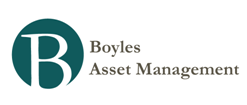F.A. Hayek's 1974 Nobel Speech: The Pretence of Knowledge
The particular occasion of this lecture, combined with the chief practical problem which economists have to face today, have made the choice of its topic almost inevitable. On the one hand the still recent establishment of the Nobel Memorial Prize in Economic Science marks a significant step in the process by which, in the opinion of the general public, economics has been conceded some of the dignity and prestige of the physical sciences. On the other hand, the economists are at this moment called upon to say how to extricate the free world from the serious threat of accelerating inflation which, it must be admitted, has been brought about by policies which the majority of economists recommended and even urged governments to pursue. We have indeed at the moment little cause for pride: as a profession we have made a mess of things.
It seems to me that this failure of the economists to guide policy more successfully is closely connected with their propensity to imitate as closely as possible the procedures of the brilliantly successful physical sciences - an attempt which in our field may lead to outright error. It is an approach which has come to be described as the "scientistic" attitude - an attitude which, as I defined it some thirty years ago, "is decidedly unscientific in the true sense of the word, since it involves a mechanical and uncritical application of habits of thought to fields different from those in which they have been formed." I want today to begin by explaining how some of the gravest errors of recent economic policy are a direct consequence of this scientistic error.
....................
My favorite quote from the speech: “…I prefer true but imperfect knowledge, even if it leaves much indetermined and unpredictable, to a pretence of exact knowledge that is likely to be false.”
- The Daily Princetonian Speaks To Paul Volcker
Link to interview: Q&A: Former Federal Reserve chairman Paul Volcker '49 DP: Pretty recently, some economists have suggested that the central bankers took [the threat of] inflation too seriously. PV: I’ll give you a simple answer. The responsibility...
- John Mauldin: Economists Are (still) Clueless
The economic forecasts of mainstream economists are quite positive, if not enirely optimistic, reflecting the current data. Should we not take heart from that? Alas, no. I have been working the last few months with my co-author of Endgame, Jonathan Tepper,...
- John Mauldin: The Theology Of Inflation
We begin this week with a simple pop quiz. Is inflation good or bad? Answer quickly. I’m sorry – your answer is wrong. Or rather, we can’t know if your answer is right or wrong because we are not sure what is meant by the question. We may...
- Nassim Taleb's Foreward To "lecturing Birds On Flying"
From a couple of years ago. January 2009: I am at the World Economic Forum in Davos, looking at the sorry crowd of businessmen, journalists, and bankers. There are also a few finance academics. Many practitioners look like they have just fallen off a...
- Smart Taxes: An Open Invitation To Join The Pigou Club – By N. Gregory Mankiw
As an economics educator, I have always been fascinated by topics about which there is a large gap between the beliefs of economists and those of the general public. For example, economists are generally supportive of free trade among nations, while the...

